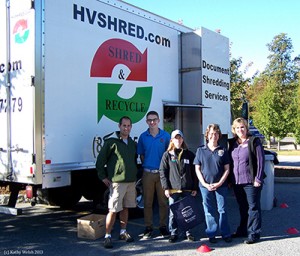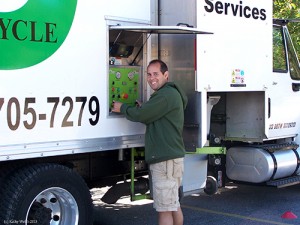
HV Shred teams up with LaGrange Pharmacy and Bridgeway Federal Credit Union to benefit the Poughkeepsie-Arlington Rotary Community Shred Day
At its September 28th Community Shred Event sponsored by HV Shred, LaGrange Pharmacy, and Bridgeway Federal Credit Union, the Poughkeepsie-Arlington Rotary is happy to announce we raised over $2000 to benefit Rotary’s many local community programs and scholarships.
Rotarian and event organizer Judith Papo was thrilled with the results. Not only was our Poughkeepsie-Arlington Rotary able to raise precious funds for our community programs, we also recycled enough confidential paperwork to save over 20 trees and countless hours of expense, heartbreak, and frustration from identity theft.
The Poughkeepsie-Arlington Club has helped the local community in many ways, donating over $250,000 in scholarships to local students, building playground equipment for Abilities First, recognizing and rewarding students of the month at BOCES and area schools and collecting used medical equipment for distribution, just to name a few.
Rotarians are professional and business men and women who work for the betterment of the local and international communities. They meet every Thursday noon at Christo’s, Wilbur Ave., Poughkeepsie . For information, contact the secretary at 486-4605.
HV Shred, LaGrange Pharmacy, and Bridgeway Federal Credit Union were proud to be able to facilitate this win/win for the community.

